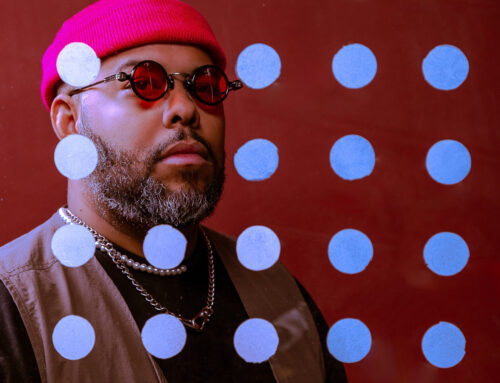He played 14 seasons, five of them Super Bowl-bound
By Steve Lansdale
In the 1970s, the Dallas Cowboys became known as “America’s Team” because of the star on their helmets, the swagger that comes with repeated Super Bowl appearances, and a slew of stars who were household names from coast to coast.
But while stars like Roger Staubach and Tony Dorsett dominated the headlines, Jethro Pugh quietly dominated games from his defensive tackle position — and never did he engage in the dancing, strutting and chest-thumping that so many players do today after big plays. Yet there are those who remember his playing career for a single play: In the 1967 title game — better known as “The Ice Bowl” — it was Pugh whose cleats skidded on the frozen turf, allowing Green Bay quarterback Bart Starr to plunge into the end zone for the winning score.
But to remember Pugh for that play simply isn’t an accurate view of his career. At 6-foot-6 and 260 pounds, Pugh was a stalwart for the Dallas defense that became known as the “Doomsday Defense.” For five consecutive seasons (1968-72) he led the team in quarterback sacks, earning All-Pro honors in 1968. He thrived in his role as “the guy playing next to Bob Lilly.”
Pugh’s out-of-the-limelight persona carries on today. The neighborhood resident still eschews the glare of the spotlight that often points at former players. He can’t be found roaming a sideline as a coach or in a broadcasting booth. Nor can he be found on local billboards, shilling for an assortment of products or appearing in a series of glitzy television commercials.
Pugh, a proud father and grandfather, is a concessionaire at Dallas/Fort Worth International Airport. He opened the first of his three D/FW Airport stores (selling sports merchandise) in 1983, five years after his last season with the Cowboys. He sold merchandise showcasing the Cowboys (as well as the SMU Mustangs and TCU Horned Frogs) before switching his focus; his shops now feature western wear.
Pugh has lived here since his retirement in 1978. The fact that he is so attached to our community — and the city of Dallas on the whole — speaks volumes about the man who almost never showed up as a rookie.
Chosen in the 11th round of the NFL Draft out of Elizabeth City (N.C.) College, Pugh says he almost sought a new career when he realized where he was headed.
“Dallas sounded so far away,” he says. “It’s 1,500 miles away from home. I had never been here, never been to Texas. I didn’t know what to expect. When I first came to Dallas, I thought there would be people riding horses everywhere, or that everyone would be wearing western hats.”
When he got here, he crossed paths for the first time with Tom Landry, the Cowboys’ legendary coach who guided the team through its first 29 seasons. Landry was instrumental in helping develop Pugh as a player and making him successful on the field, but the stoic man in the omnipresent fedora hat also instilled in Pugh a meticulous attention to detail that benefits him today as he runs his business.
Landry was known for his oft-repeated quotes and catchphrases. “Setting a goal is not the main thing,” he once said. “It is deciding how you will go about achieving it and staying with that plan.”
That approach was not lost on Pugh, during his playing career or since.
“I came to Dallas and met Coach Landry, and he wasn’t what I knew, as far as what a football coach was supposed to be,” Pugh says. “Here’s this man — he didn’t look like most coaches I’d known, and he didn’t sound like them, either. I was used to coaches yelling and cussing, but you never heard Coach Landry swearing. He didn’t have to do that.
“More than that, though, was how he kept track of things — everything. He had a drill for everything, even the smallest details. He actually had a drill where we’d go out on the field, with the defense on the right, and the offense on the left, and we’d all take off our helmets — he was making sure we knew the right way to stand during the national anthem.
“There was nothing he didn’t go over. When something happened, when something went wrong, everyone knew what it was and why it happened, because everything was part of Coach Landry’s system. I try to take that same approach now with my business.”
Today’s football fans wouldn’t have believed Pugh played the position he did — or maybe that he played football at all — when he was drafted. Coming out of college, he weighed a modest 218 pounds; by comparison, many of the players who toil at Pugh’s defensive tackle position today tip the scales at well over 350 pounds.
“I couldn’t have played if defensive tackles were that big,” he says. “There’s no way I could carry that kind of weight and still be able to move.”
That movement was what made Pugh so effective chasing down quarterbacks. While teams often geared their blocking schemes around his famous counterpart, Lilly, on the interior of the Cowboys’ defensive line, Pugh wreaked havoc. His combination of size, speed and long arms made him extremely hard to throw over, in addition to his ability to rush the opposing team’s quarterback. He became one of the game’s dominant defensive linemen, although he rarely garnered the recognition he deserved, in part because of his quiet demeanor and also because of the cavalcade of stars around him.
Former teammates have said Pugh is among those former Cowboys who deserve a spot in the team’s Ring of Honor, which honors the greatest of the great in Dallas team history. Pugh, not surprisingly, doesn’t covet such recognition.
“There are a lot of players who are more deserving of that than I am,” Pugh says. “And to be honest, I don’t think about that. I have a good life. I had a good career playing football. I played on five Super Bowl teams. There’s a feeling, when you play in a playoff game and they introduce your name — that’s something that can never be taken away. I don’t need to be in the Ring of Honor to know how the fans reacted to me.”
Pugh says he keeps up with the current Cowboys, although he doesn’t often venture out to Texas Stadium to watch the games in person.
“I do follow them,” he says. “I’ve been more ‘on board’ with the team since they hired Bill Parcells. It’s like it’s really football again.”
Parcells brings a feel of “the good old days” back to the team, Pugh says. “There were people who were Dallas Cowboys fans when I played who I don’t think were fans a few years ago. But I think that’s coming back under Parcells. There are a lot of people who are becoming fans again, and it’s because the team is winning again, and because of the way he runs his team.”
Pugh says “the itch” to stay involved in the game didn’t last long after his retirement.
“I played 14 years, with 23 or 24 playoff games,” he says. “I walked into Coach Landry’s office one day and told him ‘I’m done. I can’t play any more.’ He told me that nobody played 15 years at my position, and that I could. But my body wouldn’t let me.”
When he left the game, Pugh earned his real estate license, having bought some property with the extra money he (and his teammates) earned for making the playoffs. He didn’t play the stock market, choosing instead to invest in “something I can see, something I can touch.” He went to graduate school for a while and got divorced, and when “real estate went south” in the 1980s, Pugh reluctantly filed for bankruptcy.
Shortly thereafter, in 1983, he signed his first lease to open a shop in the airport. He met “a wonderful lady” who runs the stores, but he spent more time there than he does now.
“That was a time when people came through and talked to you. The (Los Angeles) Lakers came to Dallas, and Magic (Johnson) and Kareem (Abdul-Jabbar) would stop in and say hello. Now, with security the way it is at airports, you don’t have that. People travel with bodyguards, and they’re always in a hurry. People are just different today, and running a store is different today.”
Pugh says he still gets recognized almost everywhere he goes. And while he enjoys his privacy immensely, he also appreciates the fact that fans remember him and the career he had in Dallas.
“That’s the reward — or one of the rewards – in staying,” he says. “People remember, and that goes a long way in this town. The city has been great to me. The whole community has been great to me.”
Pugh initially lived in South Dallas, but moved to our neighborhood while he was still playing. His discovery of the area, he says, was essentially accidental.
“I just got hungry one night and went out to get something to eat,” he says. “I stopped at San Francisco Rose, and the place was packed. There was something about the people there. So I looked around the area, and settled here. I’ve never wanted to leave the area.”
To hear Pugh tell it, he doesn’t plan to leave anytime soon. His two children live nearby, his business is going well, and his place in Cowboys lore is secure.
“Like I said, this is home, it really is,” Pugh says. “Dallas is such a great community to live in. Being a Dallas Cowboy, especially when I played, is a very special thing. We’re blessed. We’re all really blessed.”





